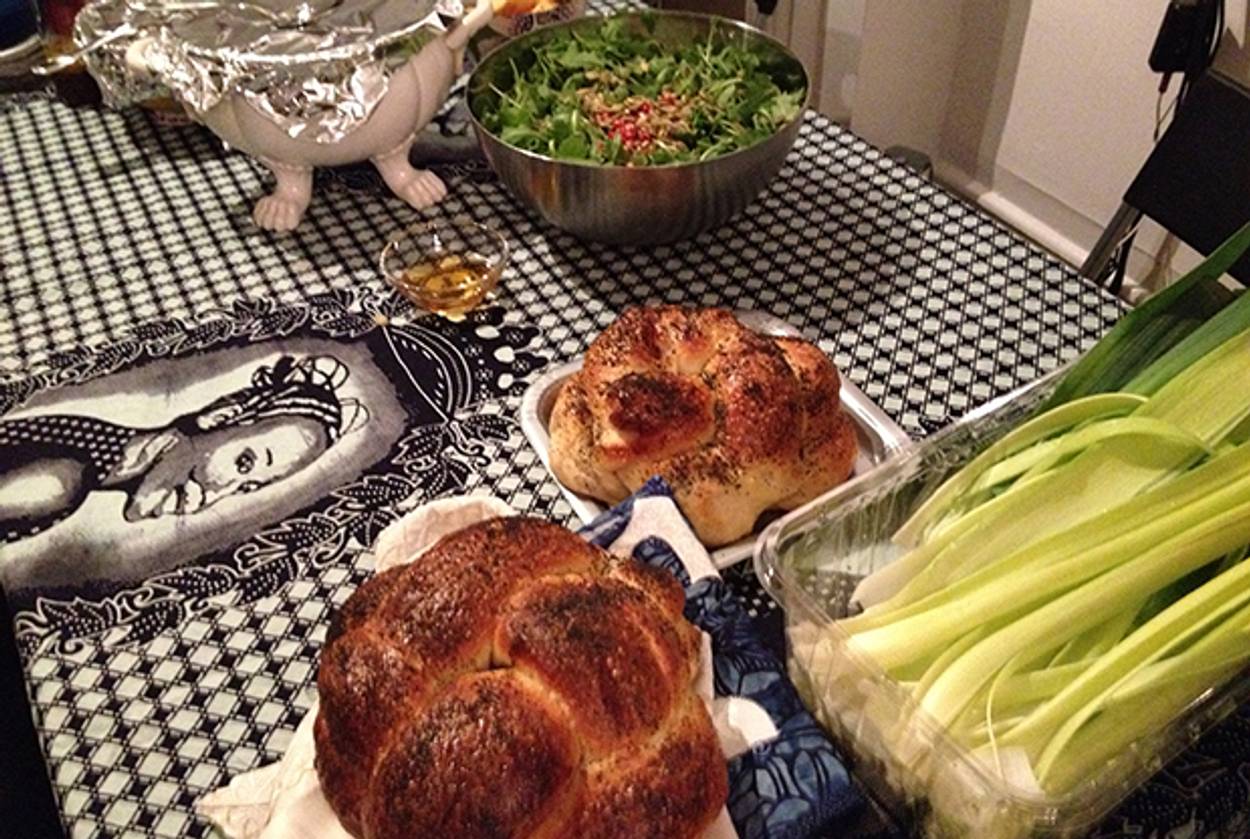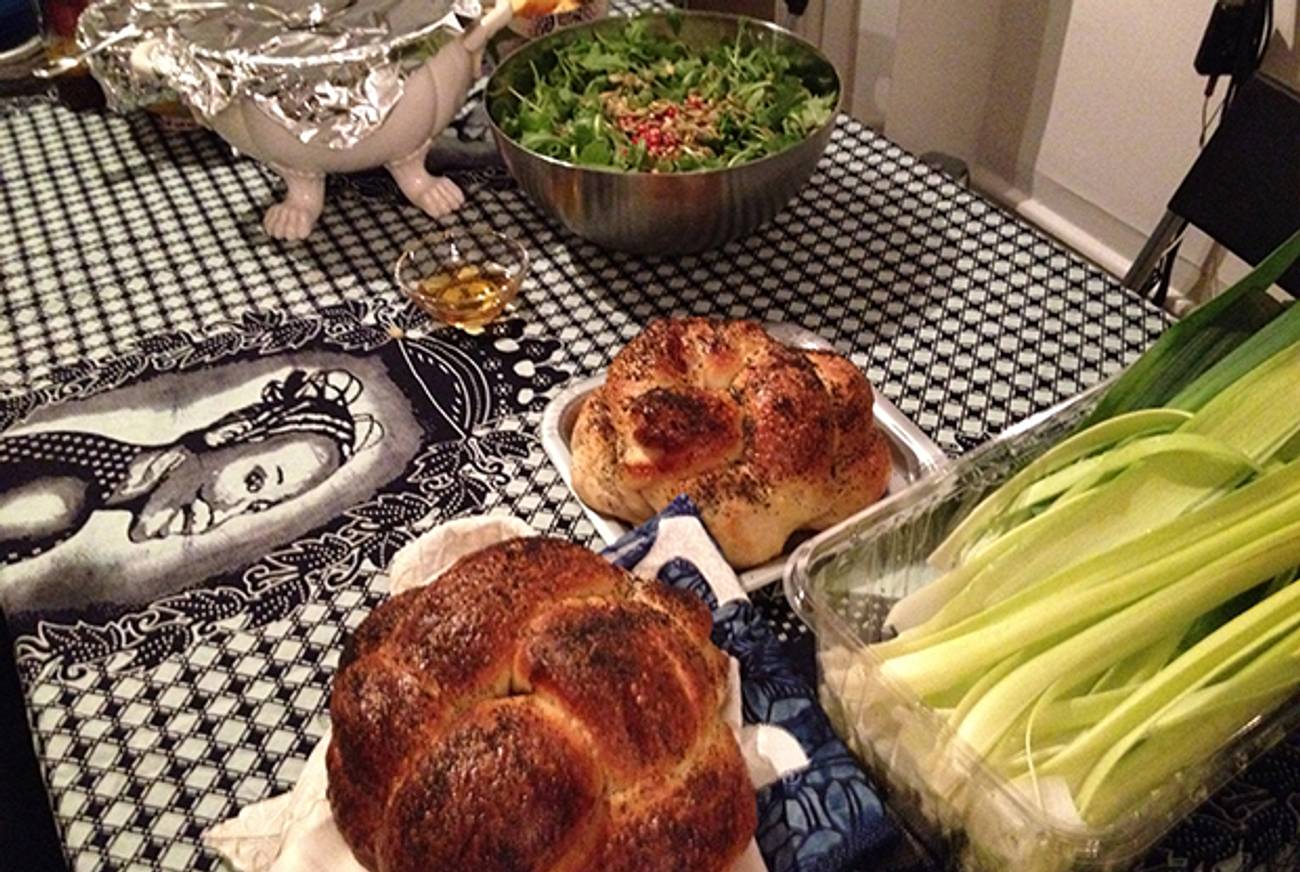The Road to the New Jerusalem, Part 3
The story behind a story about a young woman’s search for a new kind of Jewish community




Today, Tablet published “My Journey to the New Jerusalem,” a story by Sonja Sharp written and edited in collaboration with The Big Roundtable. Michael Shapiro was the editor.
Sonja Sharp came to me as much to talk about faith as about a story. This is unusual in the relationship between writer and editor.
Sonja had been my student several years ago and had stayed in touch, mostly to talk shop. But then, last winter, she stopped by to talk about faith, and as she did, being an editor, I could not help seeing a story coming to life.
Writers are caught between arrogance and despair: the former born of a belief that they have a great story to tell, the latter that no one will want to read it. Writers, no matter how successful, regard themselves as supplicants—to readers, agents, and editors: Please like what I wrote. Please.
What writers forget is that editors live for those moments when a writer walks in with a story that speaks to them so profoundly that maybe a minute into the “pitch” the editor breaks in with “ … that reminds me of … ”
The experience doesn’t happen often enough for writers (read: preferably all the time) but when it does, the idea has passed its first, crucial test: An editor (who is first and foremost a reader in endless search for a story that thrills) says, This speaks to me.
That is what happened when Sonja came to talk about what she had discovered in Crown Heights: how people like her—Jews connected not by denomination or institution or shared cultural background, but by the simple fact of being serious about living their lives as Jews—were creating a new world, a New Jerusalem.
The worst possible way for Sonja to tell this story was to write an article: More and more Jews of all ages are finding meaning …
I feared that an “article”—interviews, research, assiduous note-taking followed by the agony of writing—would sap the piece of its life.
The story was Sonja’s story. The story of her and her husband and their friends and the thrilling, maddening clutter and struggle they shared in forging their lives together.
The story needed to transport readers to Sonja’s Crown Heights, so that they could see their own journeys in hers.
So, we devised a different approach. I asked Sonja not to report, in the classical fashion she does so well. Instead, I suggested she send me emails. Just write and tell me stories. Don’t think about the writing. Just tell me what’s happening in your world.
There is a word for what I was doing, and it is “manipulative.”
I knew how terrific a writer Sonja was, knew how much this story mattered to her, and knew, too, that if she had to “write” in a formal, journalistic way, she risked panic. Choking. Tightening up. We all do it. Especially when the stakes were high.
But if she just wrote emails, how could she risk the writer’s greatest fear: failure?
She couldn’t.
She didn’t.
She would be writing her story without self-consciously “writing” it.
The emails started landing in my inbox. They were all I hoped they might be—vivid, funny, profane, questioning, thrilling. Thrilling because each email captured the sensation of first hearing about Sonja’s idea and how the story spoke to me, a Jew whose place in the Jewish world feels less than fully anchored.
Some years ago, when my children were young, my wife and I together with a group of friends thought it might be fun to start our own after-school for our children. We called it the Family Hebrew School. We were a varied group—Jews of different backgrounds and educations, non-Jewish spouses, Jewish spouses with only modest interest. Read: American Jewry circa 2000. We approached several Jewish institutions—synagogues, schools—in the hope of finding space.
We thought we might be welcomed. We were not. What became clear after several meetings was that we did not fit—“are all the mothers Jewish?” asked one rabbi.
They were not.
Pass.
No matter that we came eager to do something together as Jews, that we were serious. No one could quite see how we belonged. So, we rented space for a year and hired a teacher and held family events. And for that year, strains and all, we succeeded in being Jewish on our terms.
What we lacked, however, was what Sonja and her friends possessed: the desire to see it through, to build lives around their faith.
I know that there are variations on this story: the synagogue, say, that will not permit a child to have a bar or bat mitzvah unless the parents are paying members.
When she came to my office that day, Sonja started to tell me a story, and as she did, the small miracle of storytelling occurred.
I was not an editor. I was a reader, a listener, and the story she was telling me was my story.
I suspect many will feel the same.
Read the full story here.
Michael Shapiro is founder of The Big Roundtable, a digital publisher of ambitious narrative nonfiction. He is the author of six non-fiction books, most recently The Last Good Season and Bottom of the Ninth. His work has appeared in The New Yorker, The New York Times Magazine, Esquire, GQ, and Sports Illustrated. He is a professor of journalism at Columbia and lives with his family in New York.